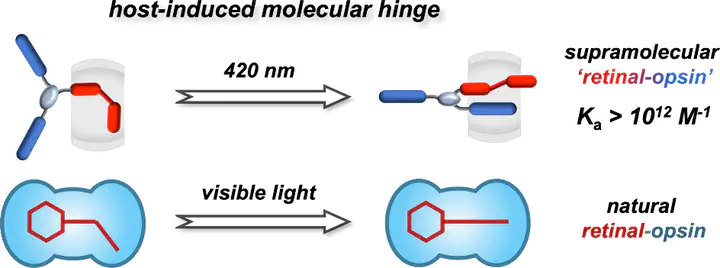 Image credit: ACS
Image credit: ACSAbstract
Molecular hinges are ubiquitous in both natural and artificial supramolecular systems. A major challenge to date, however, has been simultaneously achieving high thermodynamic and kinetic stability. Here, we employ host-enhanced intramolecular charge-transfer interactions to mediate entropy-favored complexation between a flexible AB2 -type guest and a macrocyclic host, forming a new type of molecular hinge with an ultrahigh picomolar binding affinity (Ka > 1012 M-1). This entropy-promoted hinge modulates photoisomerization, exhibiting a substantial preference for the E-isomer, which is further demonstrated to mirror the natural retinal-opsin cycle, promoting the sensitization of visible light. This work unveils an efficient approach to exploit entropy-dominant architectures for the design of hierarchical molecular systems.